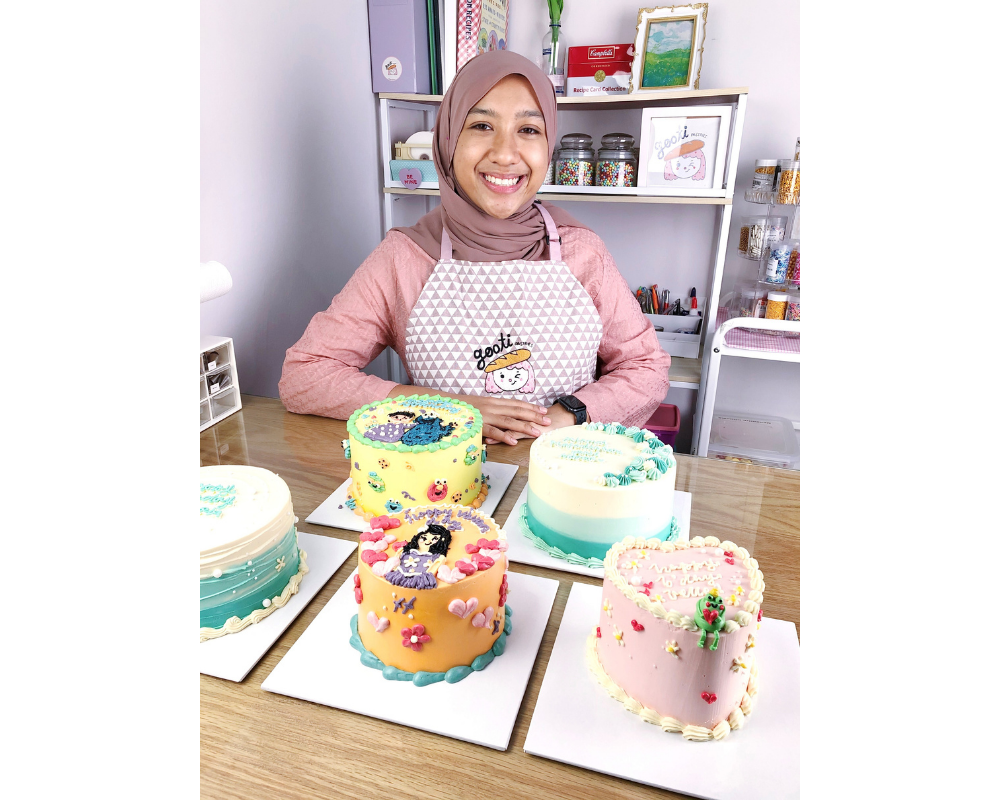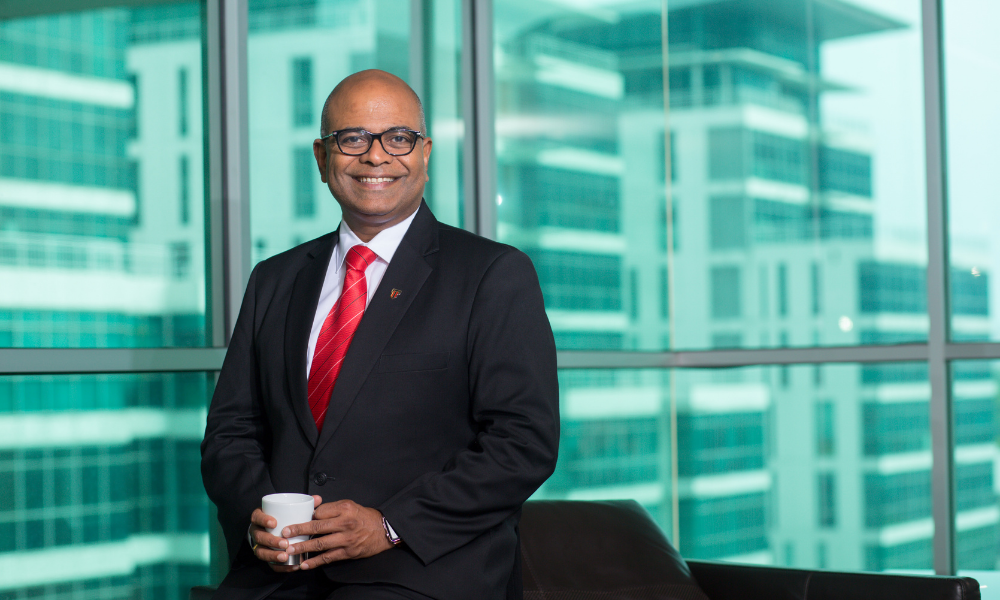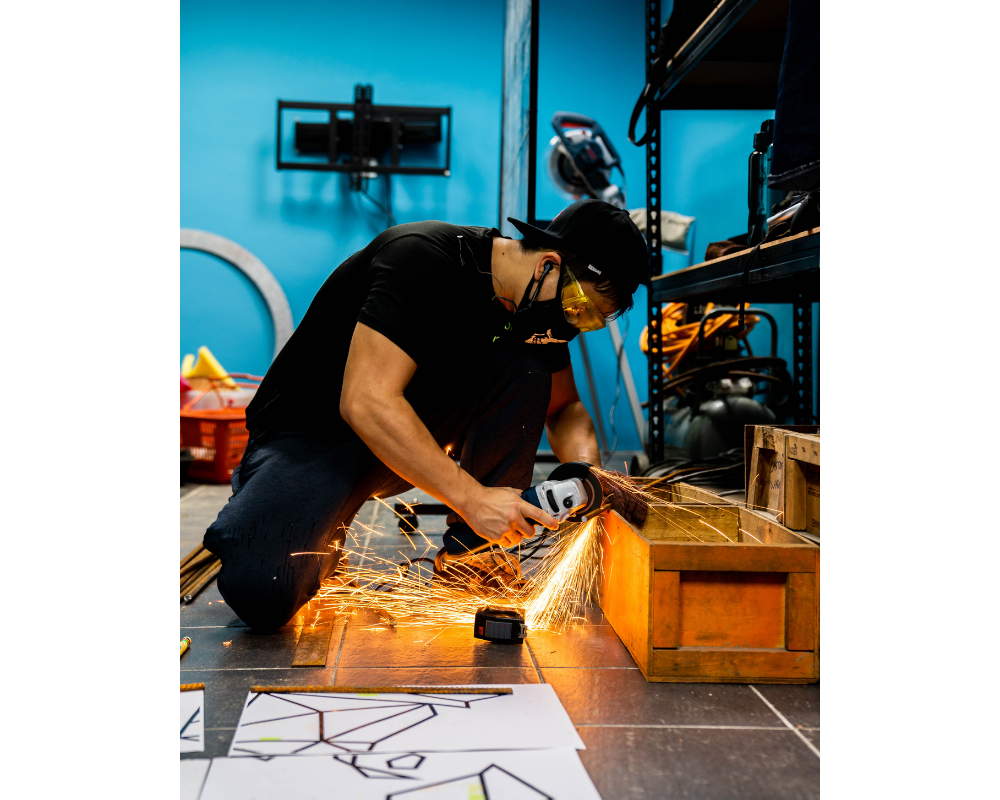The astounding progress in areas such as artificial intelligence (AI), robotics and the Internet of Things are increasingly viewed as a major threat to labour markets. Plus they also left us a gnawing question: Will high-tech machines edge us out of brain jobs?
This question was made even more unsettling when the pandemic swept across the world, causing a global economic recession. As a result, graduates today find themselves striving in a highly competitive and complex job market.

Take Taylor’s University culinary graduate, Nurul Nadhirah Abdul Azis, 24, for example. She was doing her internship at a local patisserie when the MCO was implemented. However when the establishment was unable to keep hiring her, she decided to come up with an alternative source of income by starting her own online business, Gooti Pastries.
“During the lockdown, I have gained some momentum in exploring and experimenting with my business. I make custom cakes and desserts and now I have gotten used to working from home and managing my business” said Nadhirah.
Based on the Department of Statistics Malaysia’s (DOSM) most recent labor report, the country recorded 728.1 thousand unemployed people in May 2021 and according to the MOHE Graduate Tracer Study 2020, more than 40,000 of unemployed Malaysians are fresh graduates. Undeniably, the staggering number of job seekers is higher compared to job vacancies.
A survey data from the same tracer research, however found that 99% of Taylor's University graduates were employed or gained a source of income within six months.
Taylor’s has always been consistent in maintaining its position as Malaysia’s leading private university in the QS Graduate Employability Rankings 2022, ranking 16th in the world for the Graduate Employment Rate indicator, and coherently producing high-achieving graduates every year.

“Taylor’s University introduced its unique ecosystem known as Taylor’sphere which would encourage students to think outside the box, collaborate across disciplines to solve problems and create an impact in their community, mimicking the way the industry operates,” said Deputy Vice Chancellor and Chief Academic Officer, Prof Dr Pradeep Nair.
“The Taylor’sphere is built on three pillars which focus on Intellect, Craft and Practical Wisdom. This ecosystem provide students with the proper atmosphere, networks, and resources at the university level to enable them to flourish in their future careers.”
He believes that students need to foster multidisciplinary learning, develop creative confidence, cross-collaborate with other students as well as explore further on their ideas to quickly adapt to the working world. In 2020, the number of Taylor's graduates who were "self-employed" grew considerably, indicating that many were dedicated and have the knowledge in starting their own enterprises.
“The truth is that we will face challenges that will demand several solutions, and that today's graduates will work in at least 15 different professions throughout the course of their careers. So we shouldn't limit a student's options; at Taylor's, they can broaden their horizon in various fields such as taking up an IT or Culinary degree, while picking up Marketing or Psychology modules. Students will be required to participate in multidisciplinary projects throughout their degree, beginning in the first year, to imitate how experts operate in the industry,” Prof Dr Pradeep says.
Business students can now implement a marketing strategy to sell the biotechnology students' products while a design student works on the packaging and a communications student suggests a promotional approach. These frameworks allow students to work together to build something new and take it to the next level.
Through Taylor’sphere components such as Taylor’s Me.reka Makerspace (TMM), Bizpod, Research & Enterprise, Taylor’s Curriculum Framework and Life Skills, students are able to graduate with a well-rounded set of skills and be able to bring positive transformation to society.

Taylor’s Me.reka Makerspace is the domain that enables and equips students and faculty members to become creators. TMM has mentors with professional experiences to guide students on their ideas, as well as provide workshops, space and tools for them to spark their creativity. Those with feasible business ideas are encouraged to approach the university start-up incubator BizPod for advice on funding opportunities and product commercialisation.
For a student, transforming an idea into a viable business is no easy task. However, with right coaching and training from BizPod, the students will be able receive the right mentorship to finetune their business strategies and hone their innovation skills.
Bizpod has mentored and supported student start-ups such as Arrivo, a parking software that is now valued at RM5 million, and Cultiv8, a company that specialises in ready-to-eat meals and gourmet sauces developed by Taylor's own culinology students.
"Interdisciplinary education is the way of the future. On top of allowing our students to mix and match their degree modules to gain a greater breadth of knowledge, the university has been revamping its Taylor’s Curriculum Framework to incorporate various elements such as work-based learning, hybrid degrees and compulsory interdisciplinary projects,” said Prof Pradeep.
He said these are complemented by the life skills modules that every Taylor’s student undertakes, taught by specialised life skills moderators. The university also systematically assesses students’ soft skills in every module.
Taylors is the first university in Asia that assesses its students across all their modules on their communication, teamwork, critical thinking and leadership skills. Plus they graduate with a second transcript detailing the Taylor’s Graduate Capabilities they have achieved, alongside their academic certificate.
“All these resources and initiatives serve to enhance students to be holistic and well-balanced individuals. It enables our graduates to become persons of influence and impact, be it in corporations or in their own enterprises in a post-pandemic world,” added Prof Pradeep.

